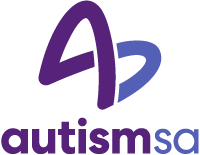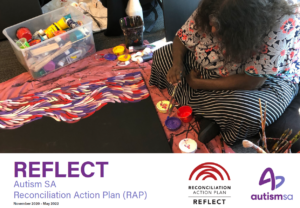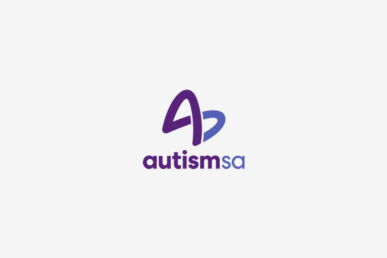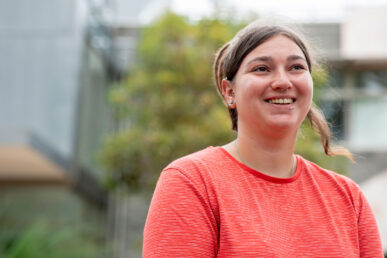In this article
Contact Autism SA
Autism SA’s Reconciliation Action Plan (RAP)
In January 2020, as part of Autism SA’s commitment to recognising our first Australians, their cultures and the value of continuing beneficial relationships, we embarked upon the exciting and rewarding commitment of developing our Reflect Reconciliation Action Plan (RAP).
Developed by the RAP Working Group and supported by the organisation’s key stakeholders, our 18-month Reflect RAP outlines our responsibility for engaging with our diverse community and reaching new levels of inclusion for all Australians.
The RAP Working Group includes representatives from several areas of Autism SA, which has ensured ownership of the plan throughout the organisation.
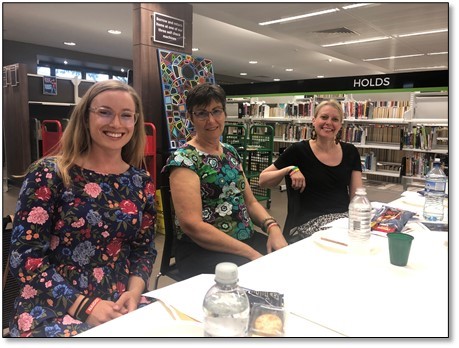
Autism SA’s journey towards reconciliation began many years ago and the organisation has a rich history of supporting Aboriginal and Torres Strait Islander individuals and families along with First Nations communities and organisations.
This includes:
- Formal and informal collaborative relationships with First Nations communities and organisations
- Providing autism-related training to groups with self-identified First Nations attendees
- Culturally customised training and workshops for groups with First Nations participants
- Delivery of face-to-face Autism SA Cultural Awareness Training programs and ongoing communication and engagement with Indigenous Liaison Officers, and
- Participation in the annual Strong Aboriginal Children’s Health Expo.
Reconciliation Action Plan (RAP) Framework
Reconciliation Australia’s RAP Framework has provided Autism SA with a structured approach to advancing reconciliation.
There are four different types of RAP that Autism SA will develop with each designed to suit the different stages of our reconciliation journey:
- Reflect
- Innovate
- Stretch
- Elevate
Our Reflect RAP
Autism SA’s Reflect RAP clearly sets out the steps that we should take to prepare for further reconciliation initiatives in future RAPs.
Committing to a Reflect RAP enables Autism SA to spend time scoping and developing relationships with Aboriginal and Torres Strait Islander stakeholders, determine our vision for reconciliation, and explore our sphere of influence before committing to specific actions or initiatives.
This process will help to produce future RAPs that are meaningful, mutually beneficial and sustainable.
In order to fulfil the aims of our Reflect RAP, Autism SA is committed to the following actions:
- Establish and strengthen mutually beneficial relationships with Aboriginal and Torres Strait Islander stakeholders and organisations
- Build relationships through celebrating National Reconciliation Week (NRW)
- Promote reconciliation through our sphere of influence
- Promote positive race relations through anti-discrimination strategies
- Increase understanding, value and recognition of Aboriginal and Torres Strait Islander cultures, histories, knowledge and rights through cultural learning
- Demonstrate respect to Aboriginal and Torres Strait Islander peoples by observing cultural protocols
- Build respect for Aboriginal and Torres Strait Islander cultures and histories by celebrating NAIDOC Week
- Improve employment outcomes by increasing Aboriginal and Torres Strait Islander recruitment, retention and professional development
- Increase Aboriginal and Torres Strait Islander supplier diversity to support improved economic and social outcomes
- Investigate improving our services and opportunities for Aboriginal and Torres Strait Islander peoples
- Establish and maintain an effective RAP Working Group (RWG) to drive governance of the RAP
- Provide appropriate support for effective implementation of RAP commitments
- Build accountability and transparency through reporting RAP achievements, challenges and learnings both internally and externally
- Continue our Reconciliation journey by evolving our Innovate RAP.
Contact Autism SA


